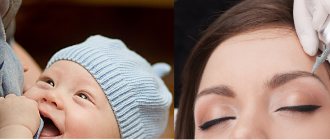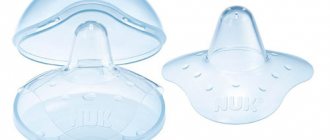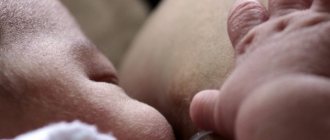Composition and purpose of the drug
Several types of product are produced. Two are applied to the skin. We are talking about ointment and gel. The third release option is candles. They are administered rectally.
The composition of the drug is presented:
- artificially synthesized interferon alpha 2b, called recombinant;
- vitamin E;
- ascorbic acid (vitamin C).
Additional components are:
- cocoa butter;
- confectionery fat;
- sodium ascorbate.
Reception of Viferon is indicated:
- For respiratory and urogenital infections, influenza and parainfluenza, pneumonia, cytomegalovirus, enteroviral disease, herpes.
- In the comprehensive fight against viral hepatitis.
- For cirrhosis of the liver.
Advantage ointment is used on the skin, for example, for herpes, papillomavirus. The ointment can also be used vaginally by applying it to vaginal tampons.
The gel is used to treat the mucous membranes of the nose, where a film is created that represents a barrier to the penetration of pathogens.
Suppositories can be used both rectally and vaginally. The production of candles is carried out in different dosages (150,000, 500,000, 1,000,000, 3,000,000 international units).
Viferon is also used to prevent viral diseases. This is relevant in case of direct contact with an infected person during seasons of increased flu incidence.
Main components and their effects on the body
Viferon helps a new mother counteract viral pathology, and it also affects some additional pathogenic microorganisms. The composition of the drug is so formed that each component potentiates the effect of the other. As a result, the total effect is much higher than a single one. The product is available as suppositories for insertion into the rectum and ointments. Viferon has the following composition:
- human interferon recombinant alpha-a2,
- vitamins E and C.
There are many similar tools. The main active ingredient is interferon. In this drug, it is artificially created; similar proteins are formed in cells immediately after the invasion of viruses. It is thanks to interferon that Viferon is able to stimulate the immune system in the fight against infection.
Interferon acts indirectly, and not specifically on viral particles. It enhances the action of T- and B-lymphocytes, and also reduces the ability of pathogens to reproduce. Interferon changes the acid balance of cells and enzyme activity in such a way that the vital activity of viruses in them becomes impossible. After this, they go outside, where they are easily recognized and destroyed by the immune system.
Viferon is also capable of stimulating body cells in the fight against chlamydial infection, ureaplasma and some others.
Thus, it becomes clear that Viferon, including during lactation, helps the immune system fight infectious pathogens, and does not directly have a therapeutic effect. That is why the product can be used during pregnancy and breastfeeding without fear of the drug’s effect on the baby.
Watch the video about the action of the drug:
Operating principle of Viferon
Interferon is known as an antiviral and immunostimulating agent. The effect on the body is indirect, that is, it activates internal defense, which inhibits pathogenic agents. The action of the medicine is as follows:
- Increasing the activity of cellular enzymes makes it impossible for pathogens to reproduce. In this regard, the viruses die. Interferon, leaving the affected cell, notifies neighboring cells of the danger and prevents the infection from spreading.
- Interferon activates protective blood cells (macrophages), suppresses excessive proliferation and growth of malignant tumors.
- Due to the content of vitamin C in the preparation, the antiviral effect is enhanced several times.
- Vitamin E is a powerful antioxidant that helps protect the body from free radicals. The action of vitamin E is based on providing an anti-inflammatory and regenerating effect.
Due to the fact that the drug does not have a direct therapeutic effect, but indirectly by increasing the body’s own defenses, the prescription of Viferon to a nursing mother is completely justified. There is no risk of negative impact on the baby.
Taking Viferon allows you to reduce the dosages of other drugs used in treatment and shorten the duration of therapy.
How do Viferon suppositories work?
Fever and colds during breastfeeding The drug is available in several forms: gel, ointment, tablets and suppositories. Each of them has its own advantages, but affects the body basically the same. The main component of all types is interferon. In addition to it, the ointment contains other substances: petroleum jelly, lanolin, tocopherol. However, the dosage of each drug and the duration of treatment can change dramatically. In case of breastfeeding, the necessary therapy with Viferon should be prescribed by a doctor depending on the degree of the disease.
During lactation, mothers are most often prescribed Viferon suppositories. They are helping:
- restore tone to a weakened body;
- boost immunity;
- protect against infection and possible viruses.
Medical practice and the experience of millions of young mothers show that Viferon is easily tolerated by the body of babies, so women begin to use the drug on their own. The main substance in the drug, interferon, is safe for babies and is what is most often prescribed to pregnant women for colds.
In addition, Viferon can be prescribed by a gynecologist in case of disease of the female reproductive system: genital herpes, ureaplasmosis, gardnerellosis, chlamydia, cytomegalovirus disease, vaginal candidiasis, vaginosis, papilloma virus.
The drug is not a medicine for self-relief of an existing infection. Most often, it is prescribed as an antiviral treatment in parallel with other drugs that help completely get rid of the disease.
Use of Viferon during lactation
The prescription of the drug, selection of dosages, regimen and duration of treatment is carried out only by the attending physician. The required doses of the drug are selected individually. This is due to the nuances of the disease, the type of infection, and the condition of the body. Wherein:
- The ointment is applied to the affected skin four times a day. It is recommended to use the product when rashes appear. The course of treatment for herpes and human papillomavirus infection usually lasts from 5 to 7 days.
- The gel is used to lubricate the nasal passages during the cold season to prevent the development of the disease. The gel can be used as a prophylactic agent in children from birth.
- Viferon suppositories for breastfeeding are prescribed by a doctor as part of a comprehensive treatment. The appointment is carried out under the supervision of the attending physician.
The dosage of Viferon during lactation when infected with viral infections or influenza is 500 thousand IU (international units). Administer 1 suppository 2 times a day. Therapy lasts from 5 days to a week. The timing depends on the severity of the disease.
For uncomplicated viral infections, a dosage of 150 thousand IU can be used. Candles are placed 2 times a day for at least 5 days.
If sexually transmitted infections are detected, therapy lasts at least 10 days. Suppositories are given 2 times a day. The required dosage is 1 million IU.
The treatment regimen for hepatitis involves a dosage of 3 million IU.
The break between courses of treatment should be 5 days. Based on the results of the doctor’s examination, the need to continue taking the medication is determined.
When taking Viferon, the body's synthesis of its own interferon is not suppressed and does not cause addiction.
How to treat allergies during lactation
An allergic reaction during lactation is a fairly common occurrence. To prevent and combat allergies, a nursing woman should follow these rules:
- Ventilate your living space daily and do wet cleaning.
- Avoid eating the following foods: citrus fruits, chocolate, fish, honey, nuts, take a test to determine your tolerance to certain foods.
- Clean carpets, curtains and stuffed animals from dust and mites frequently.
- Wash bedding sets regularly, and the water temperature should be at least 60 0C
- During the warm season, do not walk in places where there are many flowering trees.
- When traveling by car, do not open the windows.
Should I stop breastfeeding?
When assessing the possibility of using Viferon during breastfeeding (breastfeeding), women often worry about their newborn.
Mothers want to know whether the medicine will worsen his health. Viferon itself does not have a negative effect on the baby and is practically not excreted in breast milk. However, the drug is often prescribed in combination with other medications. They can be harmful to babies. It is necessary to clarify with the doctor the nuances of administration and the effect on the child.
If only Viferon is taken, feeding is not interrupted. Continuing lactation allows the baby to eat well. Important substances are transmitted with milk to enhance the baby’s immunity.
Weaning can negatively affect not only the child’s health, but also prolong the mother’s recovery process. This is partly due to the increased risk of complications.
There are no special rules for breastfeeding in case of infection with acute respiratory diseases. However, please note that milk:
- should not be expressed;
- there is no need to boil, thereby worsening its beneficial and nutritional properties.
Interruption of feeding is provided if it is necessary to take antibiotics and other potent medications. They can harm the child's body. In this case, you need to express, throwing away the milk. The baby is transferred to adapted formulas.
The baby’s health is interconnected with the mother’s health, since it is through milk that the baby consumes the nutrients he needs, which increase the body’s defenses.
How does a cold pass during breastfeeding?
The duration of a cold usually ranges from 2-3 days to several weeks. ARI can be contracted through inhalation of droplets of sputum containing viruses when the patient coughs, sneezes and talks at close range.
Breastfeeding mothers are more susceptible to colds than others. Due to the constant production of milk, their body requires more energy and oxygen. That is, their respiratory organs work under high load and have a greater “chance” of getting the virus.
The first signs of manifestation - fever, sneezing, runny nose, sore throat, cough - should immediately alert the mother. Treatment in her case should occur immediately. Since most medications cannot be taken in the situation of a nursing woman, it is best to consult a doctor who will advise the necessary treatment.
But it should be noted right away that you should not stop breastfeeding if your mother has a cold. This is done only when a woman is prescribed a mandatory drug that is incompatible with breastfeeding.
Doctors' recommendations
Viferon suppositories are safe during lactation and have proven themselves in the treatment of both adults and children. The only contraindication to taking the drug is individual sensitivity to the constituent components, in most cases to cocoa. Its oil serves as the base for candles.
In order to prevent adverse reactions, the following rules should be followed:
- do not diagnose and treat yourself;
- seek help from a specialist;
- strictly follow the instructions and prescriptions of the attending physician.
If any unpleasant symptoms appear during treatment with Viferon, you should stop taking the medication and seek help from a specialist.
Viferon is sold in pharmacies without a doctor's prescription, but this does not mean that the drug can be taken uncontrolled, especially by nursing mothers. Self-medication can lead to adverse consequences. It should be remembered that in such a situation the mother puts not only herself, but also her child at risk.
The medicine should be stored in its packaging in the refrigerator. Under no circumstances should you use a drug that has expired.
Despite the effectiveness and safety of some medications, it should be remembered that it is easier to prevent a disease than to treat it. To prevent the occurrence of diseases, it is recommended:
- Eat nutritiously and properly, rest.
- Walk outdoors more often.
- Follow recommendations for the prevention of colds.
While breastfeeding, Viferon ointment or gel should not be applied to the breast area, nipple and areola.
Analogs
Viferon has no analogues that completely replicate its composition. The pharmaceutical industry creates products that have the same type of effect on the body, these include:
- Genferon candles;
- injection powder Interal – P;
- tablets Kagocel, Arbidol;
- Grippferon spray, Interferon.
Despite the harmlessness of all these drugs, during the feeding period they can only be prescribed by a doctor who has assessed the woman’s condition and chosen a treatment regimen that is suitable for her personally.
Patient reviews
Reviews from women who took Viferon while breastfeeding are mostly positive. Patients note:
- the effectiveness of the drug against viral and infectious diseases;
- reduction of treatment time;
- improvement in condition after the first day of using the drug;
- in most cases, the medicine was easily tolerated, without causing any adverse reactions in either the mother or the child;
- effectiveness when the first signs of herpes and papillomas appear.
The advantage of the medicine is the possibility of its use for preventive purposes, in case of contact with a sick person or to prevent infection during the cold season. In most of these cases, infection did not occur or the disease proceeded in a fairly mild form.
However, you can also find negative reviews about the drug on the Internet. Some patients write that they did not notice any effect from using Viferon.
Why is the drug prescribed?
The main indications for the use of Viferon are as follows:
- For combined therapy of various infectious pathologies in adults and children (ARVI, influenza, pneumonia, meningitis and even sepsis).
- For complex treatment of hepatitis of various etiologies.
- For the treatment of herpetic and papillomavirus infections of various locations, including the external and internal genital organs. If the epithelium of the cervix (cervix) or vaginal mucosa is damaged, suppositories are used, but ointment in the form of tampons is also possible.
- For more effective treatment of sexually transmitted diseases (cytomegalovirus, chlamydia, trichomonas, ureaplasma, mycoplasma, candidiasis and similar infections).
- Viferon (ointment) during lactation is used as a therapy for skin and mucous membranes affected by the herpes virus and papilloma. These are condylomas, warts and the like.
Why is there no Viferon in tablets or injections?
To place a candle, appropriate conditions are required. Many people prefer to take medications in tablet form - it’s more familiar, more convenient, and you can take them anywhere. Or, sitting comfortably on the couch, receive the drug intramuscularly. However, Viferon is not available in these two forms, why?
Any medicine entering the gastrointestinal tract:
- interacts there with gastric juice and other substances that are part of the digestion process;
- in this case, the decomposition of protein molecules that get there with food occurs.
Interferon, the main component of Viferon, is a protein, which makes the medicine in tablet form useless, since it will decompose before it has time to exhibit healing properties. As for Viferon injections, the result of its administration can be a severe reaction of various organs and systems of the human body.
On the basis of Viferon, analogue drugs are produced, including in the form of injections. You need to look for information about this separately.











